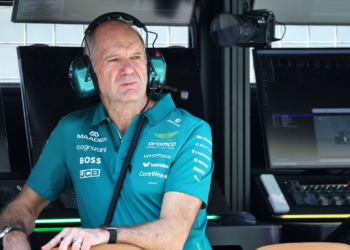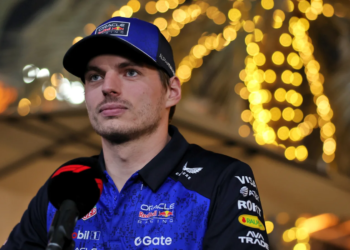Mercedes and Porsche have both recently announced that they are going to become involved in Formula E in 2019.
This decision comes because both companies want to be involved in the technical development of electrical systems, while also benefiting from the green image that Formula E likes to portray. The fact that Formula E is currently economically unsustainable and has a very small audience is not deemed to be important.
The two German companies will join Renault, Audi, DS, Mahindra, Jaguar, BMW, China's NIO, which is developing a drive-train for the NextEV team, Venturi which is working a power unit from Germany's ZF and Penske, which is to provide motors for the Faraday Future Dragon Racing operation. Audi will take over direct control of the ABT team, while BMW is expected to enter the series as an official manufacturer for Season 5, which will kick off in the autumn of 2018.
There are rumours that by then Renault will have handed over its entry in the series to sister company Nissan, as part of a streamlining of the sporting activities of the Renault Nissan alliance brands. Mercedes and Porsche will enter the series in the autumn of 2019, when the numbers of teams will increase to 12 – if all goes to plan.
The series will reach an important milestone in the autumn of 2018 when there will be a futuristic new chassis, built by Frédéric Vasseur's Spark Racing Technology. At the same time the series will switch away from the mid-race car switch as the technology reaches a point that will allow the cars to run a full race distance.
Despite all of this Formula E remains of limited marketing value as it is still not attracting large numbers of fans. Nonetheless, it provides manufacturers with a platform to show and develop their electric car technology.
"The growing freedom for in-house technology developments makes Formula E attractive to us,” says Porsche's Michael Steiner. “For us, Formula E is the ultimate competitive environment for driving forward the development of high-performance vehicles in areas such as environmental friendliness, efficiency and sustainability.”
With Mercedes set to quit DTM at the end of 2018 and Porsche leaving the WEC at the end of this year, both championships will need to have a rethink about the future. What is interesting is that Wolff's recent remarks that the combination of Formula 1 and Formula E suit Mercedes’ motorsport ambitions are just as valid for Porsche as they are for Mercedes!
In other words, Porsche's announcement that it is quitting the WEC to join Formula E in 2019 is also part of a "new strategy and realignment" of the company's motorsport programmes. And while the FIA and Formula E can be happy to have landed both Mercedes and Porsche, it is expected in F1 circles that another shoe is yet to drop.
Porsche will quit the FIA World Endurance Championship's LMP1 class at the end of this season, but the signs are that the ultimate goal is not to rely only on Formula E and that Porsche's next stop will be an F1 deal.
The company already has all the technology required to create a current F1 engine and while it is unlikely to win anything before the new F1 rules come into place in 2021, there is a very obvious strategy which it could take to be in a great position for the next F1 era.
The word in Budapest before the summer break was that Porsche will come to F1 – perhaps with other VW brands following as well – and that the obvious deal would be to go into partnership with an established team, in order to avoid having to invest in expensive chassis technology and infrastructure.
While it is assumed by most people that this would involve a deal with Red Bull Racing, it is much more likely that Porsche will go to a team which is a little bit more manufacturer-friendly. McLaren has its own agenda with engines while Sauber and Toro Rosso are in the wrong places. Haas is a Ferrari satellite. Force India might be a possible partner, but while it has a great group of engineers it needs a huge amount of capital investment..
All of this means that the best available choice is clearly Williams F1, not only because the team has a great heritage and decent facilities, but also because it needs a manufacturer to get it back to winning, which a customer Mercedes engine deal will not do.
There are also other elements that make Williams the obvious choice, not least the fact that it is sponsored by Porsche's traditional motorsport partner Martini & Rossi and the various brands fit very neatly together. The Martini Porsche relationship goes back nearly 50 years and is a brand that is instantly recognised outside the confines of F1.
Williams is also a company that is listed on the stock exchange in Germany, which means that the potential for a full takeover of the Williams group exists, if the family wants to sell out to Porsche at some point in the future. This need not all happen tomorrow, but there is a great deal of long term logic in such a relationship.
As they say, watch this space!
This article first appeared in Motorsport Monday Issue 229, click here to read it.






Discussion about this post